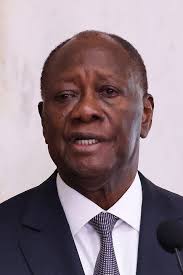Understanding Alassane Ouattara’s Impact on Ivory Coast

Introduction
Alassane Ouattara, the current President of Ivory Coast, has played a pivotal role in the country’s political and economic landscape since he took office in 2011. Understanding his leadership is crucial as it impacts not only the future of Ivory Coast but also the stability of the West African region.
Political Context and Leadership
Ouattara rose to prominence during a challenging period in Ivory Coast’s history, marked by civil unrest and political turmoil. Before his presidency, he was an influential economist with experience in international organizations, including the International Monetary Fund (IMF). His background equipped him with the tools to implement economic reforms aimed at revitalizing the national economy.
Following the civil war in 2010-2011, Ouattara’s leadership focused on reconciliation, urging the nation to move beyond its divisions. Under his administration, Ivory Coast has seen significant economic growth—boasting a GDP growth rate of approximately 9% in recent years, one of the highest in Africa. This growth is largely attributed to improvements in agriculture, infrastructure, and foreign investment.
Recent Developments
As of 2023, Ouattara has faced various challenges, including addressing the concerns of political opposition and managing economic pressures exacerbated by global events, such as the COVID-19 pandemic and rising inflation. His government has also focused on promoting youth employment and enhancing social services, reflecting an effort to create a more inclusive economy.
In October 2023, Ouattara announced plans to launch a new infrastructure initiative aimed at further boosting economic opportunities and addressing transportation hurdles throughout the country. This move signals his commitment to sustainable development and long-term stability.
Conclusion
Alassane Ouattara’s impact on Ivory Coast can be seen through the dual lens of remarkable economic progress and the ongoing political complexities. As he continues his leadership, the future of the country hinges on his ability to balance growth with social harmony. For observers and stakeholders, monitoring Ouattara’s policies and their outcomes will be essential to understanding the trajectory of Ivory Coast in the coming years. The political climate remains delicate, and securing a peaceful and prosperous future will require ongoing dialogue and reform.









